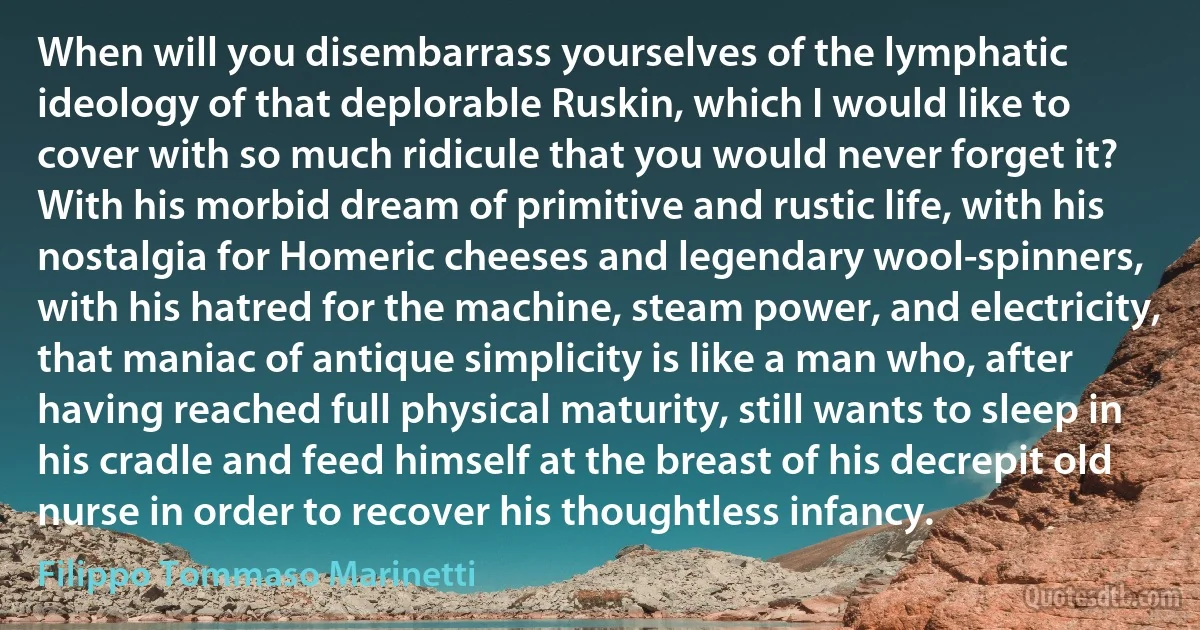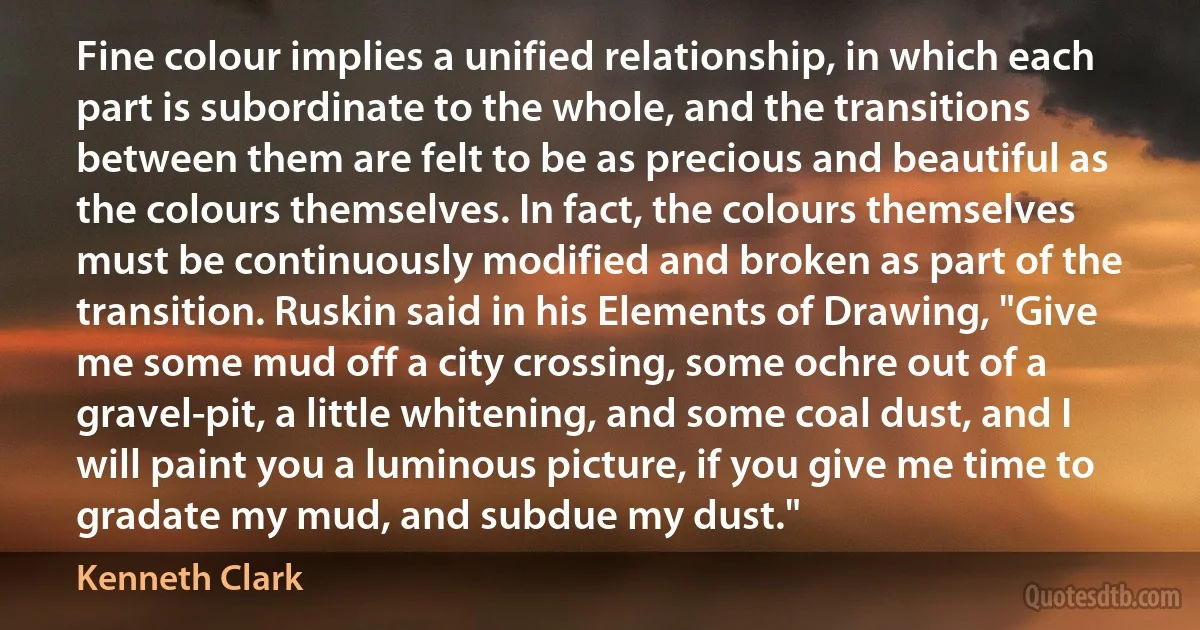Ruskin Quotes
Then, above all, the English people have a curious sense of humour, rather than wit. Humour comes from the heart; wit comes from the brain. We can laugh at ourselves. Do you remember what Ruskin said? "The English laugh is the purest and truest in the metals that can be minted," and indeed, only Heaven can know what the country owes to it. Well, laughter is one of the best things that God has given us, and with hearty laughter neither malice nor indecency can exist. And of all men who have shown us what that laughter can mean, none was like Dickens, every one of whose characters is English to the marrow; and if I might mention a living writer, I think the truest Englishmen are found in Mr. Priestley's novels.

Stanley Baldwin
Ruskin says that anyone who expects perfection from a work of art knows nothing of works of art. This is an appealing sentence that, so far as I can see, is not true about a few pictures and statues and pieces of music, short stories and short poems. Whether or not you expect perfection from them, you get it; at least, there is nothing in them that you would want changed. But what Ruskin says is true about novels: anyone who expects perfection from even the greatest novel knows nothing of novels.

Randall Jarrell
A democrat by conviction rather than by temperament, urging democracy as 'the only method consistent with human instinct toward expansion,' he was yet an educator, and believed in equality upon a high, not upon a low plane. Like Ruskin, he demanded of men their best, and with less than their best refused to be satisfied.

Florence Earle Coates
Literary men now routinely tell their readers about their divorces. One literary man who reviews books wrote, in reviewing a study of Ruskin, that he had never read a book by Ruskin but that the study confirmed him in his belief that he didn't want to read a book by Ruskin. This man very often writes about his family life.

George W. S. Trow
Although the '60s counterculture has been much maligned and discredited, it attempted to provide what we still desperately need: a spirited culture of refusal, a counter-life to the reigning corporate culture of death. We don't need to return to that counterculture, but we do need to take up its challenge again. If the work we do produces mostly bad, ugly, and destructive things, those things in turn will tend to re-create us in their image. We need to turn to good, useful, and beautiful work. We need to ask, as Thoreau and Ruskin did, What are the life-giving things? Such important questions are answered for us in the present by the corporate state, while we are left with the most trivial decisions: what programs to watch on TV and what model car to buy.

Curtis White
Fine colour implies a unified relationship, in which each part is subordinate to the whole, and the transitions between them are felt to be as precious and beautiful as the colours themselves. In fact, the colours themselves must be continuously modified and broken as part of the transition. Ruskin said in his Elements of Drawing, "Give me some mud off a city crossing, some ochre out of a gravel-pit, a little whitening, and some coal dust, and I will paint you a luminous picture, if you give me time to gradate my mud, and subdue my dust." In many works by the greatest colourists - Rembrandt and Watteau are examples - there are very few identifiable colours.

Kenneth Clark
Shaw's association with Fabianism is of great importance, for it marks the confluence of two traditions which had been formerly separate and even opposed. Fabianism, in the orthodox person of Sidney Webb, is the direct inheritor of the spirit of John Stuart Mill; that is to say, of an utilitarianism refined by experience of a new situation in history. Shaw, on the other hand, is the direct successor of the spirit of Carlyle and of Ruskin, but he did not go the way of his elder successor, William Morris.

Raymond Williams


